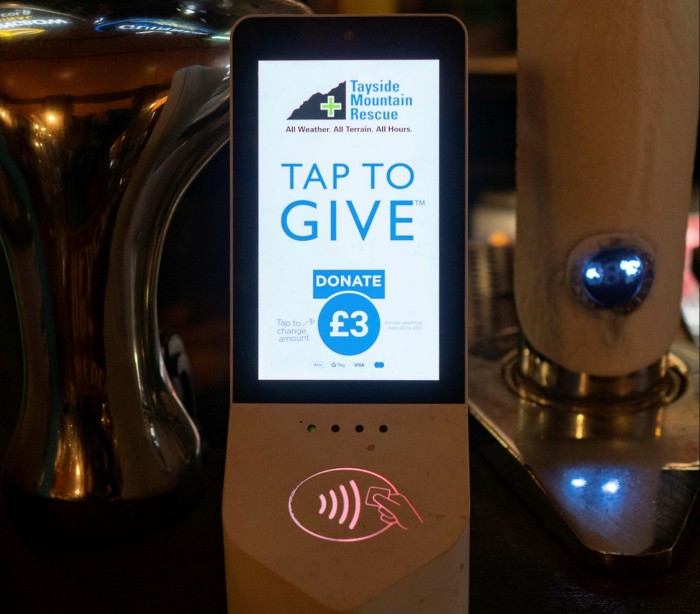UK start-up paid taxpayer cash to investor who helped it raise the money
A British payments start-up that is now facing bankruptcy took taxpayer money from Rishi Sunak’s Future Fund and used it to buy technology from an investor who helped it raise the cash.
GoodBox raised £9mn in a January 2021 convertible loan deal with the Future Fund scheme, which operated in the first year of the pandemic, according to people familiar with the matter and shareholder communications seen by the Financial Times.
Half of the money came from a Guernsey company called Q Invest Limited, which is controlled by British payments entrepreneur Miles Carroll. The remaining £4.5mn came from the taxpayer.
A portion of the funds were earmarked for the purchase of technology for processing payments, called a payment gateway. Three days before signing the Future Fund deal, GoodBox agreed to license such a technology from Q Invest at a cost of £5.2mn, meaning Q Invest would in effect receive back its outlay plus £700,000 of taxpayer money.
GoodBox, which sells payment devices for charitable donations, has since found itself facing administration, according to the shareholder communications. A creditor of the company is seeking to appoint administrators while GoodBox itself has now hired advisers to pursue a pre-packaged sale out of administration.
The news is a blow for the UK government’s venture capital fund, a programme that has resulted in the taxpayer owning stakes in a broad swath of British start-ups, including a cannabis products firm and a south London brewery, but that has been hit by low levels of fraud.

David White, GoodBox’s chief executive, did not respond to requests for comment. Carroll, who is also a GoodBox shareholder, said in a brief phone call, “I’m not going to comment”. He did not comment in detail when contacted subsequently by FT by email. However, he said there were inaccuracies in details the FT had put to him, but he was unable to specify them because of confidentiality clauses.
The Future Fund, which did deals worth £1.1bn with more than 1,000 start-ups, required companies to find a third party to apply on their behalf. It offered funding of up to £5mn, which the lead investor had to at least match. The loans have a 36-month maturity.
The terms of the Future Fund do not appear to have prohibited companies from purchasing services from their lead investor.
GoodBox was founded in 2016 and counts The Church of England, the Natural History Museum and the British Red Cross among its customers, according to its website. The business raised funding in 2019 at a £19mn pre-money valuation on Seedrs, the crowdfunding site.
The company was hit hard by the pandemic, forcing it to raise an emergency round of funding in early 2020 at just 12.5 per cent of the share price it commanded the previous year. It subsequently got backing from the Future Fund, which provided convertible loans to any companies that met its criteria.
In a January 2021 message to shareholders, GoodBox described the £9mn Future Fund financing as “contingent” on the company making its best efforts to buy a payment gateway. GoodBox said the “final requirement” to close the Future Fund round was securing shareholder approval to spend up to £5.2mn for such a purchase. It said that amount was “the price set for one gateway of particular interest”, which it did not identify.
In April this year, GoodBox told shareholders that the Future Fund round gave the company enough money to “see us through to profitability” and allowed it to obtain “key payment software” costing £5.2mn.
However, it said revenues had not recovered as quickly as expected and said the payment software was still “undergoing stringent due diligence and will only be accepted once it has been fully vetted and verified”. Carroll told the FT a potential dispute between Q Invest and GoodBox had been amicably resolved.
GoodBox also told shareholders that “uncertainty relating to the implications” of the Future Fund convertible loan note had meant it was unable to secure the required 75 per cent shareholder approval for a recent attempted funding round.
Future Fund loans generally convert to equity at discount of 20 per cent to the prevailing price in a funding round. Loan note holders have the option to convert if a funding round is less than the size of the loan. Conversion is automatic for rounds of equal or greater size.
Last week, an IT supplier to GoodBox, NGI Systems, filed to appoint administrators. GoodBox told investors this week, in documents seen by the FT, that NGI was “claiming huge sums of liabilities, which we dispute”. A hearing has been set for Friday, according to GoodBox. NGI is controlled by GoodBox’s co-founder and chief technology officer, Tibor Barna.
NGI’s secretary, Ioan Polianciuc, said in an email: “We consider it in the interest of GoodBox for administrators to be appointed by the Court to scrutinise certain questionable dealings of the Board. A key example is a £5.2mn transaction that involved UK taxpayer funding.”
The British Business Bank said: “Investments made by the Future Fund were based on a set of standard terms with published eligibility criteria.”
“It would not be appropriate to comment on individual cases given commercial sensitivities,” it added.